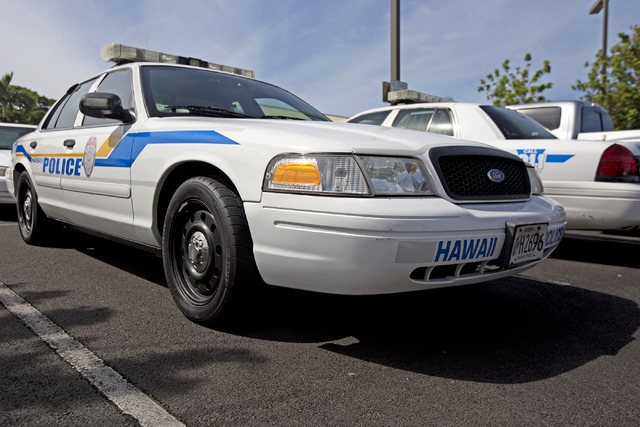Cameras for cops in focus: Bills to implement use of dashboard, body devices debated
A number of measures have been introduced in both houses of the state Legislature that would dictate the purchase and use of dashboard and body-worn cameras for police officers in departments statewide.
ADVERTISING
Implementation of dashboard and body cams has been a hot-button issue in light of highly publicized incidents nationwide involving law enforcement officers and the use of excessive force. The language in several of the measures notes that nationally, law enforcement agencies spend about $2 billion a year investigating complaints against officers.
Four House and three Senate bills passed their first readings by their respective legislative bodies.
Senate bills 331, 421 and 569 were referred to the Public Safety, Judicial and Ways and Means committees, while House bills 383, 1350 and 1380 were referred to the Judiciary and Finance committees. House Bill 149 was referred to the Public Safety and Finance committees.
SB 331 and 421 are scheduled to be heard by the Public Safety, Intergovernmental and Military Affairs committee at 1:15 p.m. today at the state Capitol in Honolulu. The main sponsor of both bills is Maui Sen. Gilbert Keith-Agaran, with Hilo Sen. Kai Kahele one of the co-sponsors of SB 421.
SB 331 would regulate the use of body-worn video cameras by law enforcement officers and body-worn video camera footage, while SB 421, a more sweeping measure, would establish the requirements for body-worn and vehicle cameras for county police departments, appropriate matching funds for counties to purchase body-worn and vehicle cameras and require departments to report costs of implementing and maintaining the body-worn camera and vehicle camera program to the Legislature.
Hawaii Police Department Chief Paul Ferreira said Monday that SB 331 and its companion bill, HB 149, “are measures that we probably will support.”
“These are measures that say if a department has a body-worn camera program, they need to have procedures in place that will address retention (of video recordings), use, those kinds of things,” Ferreira said. “The other measures, they’re almost dictating policies or operating procedures for the departments. Those were introduced last year, as well. Where the law enforcement community has a problem with it is in trying to dictate how the police department will operate, in the sense of what procedure to follow. When you have to turn on the camera. When you have to turn off the camera. All of those things should be left to the department to determine.”
Hawaii County Prosecutor Mitch Roth said he’s also in favor of the implementation of the field cameras for police.
“Personally, if I were a police officer, I wouldn’t go out into the field without one nowadays,” Roth said. “I haven’t seen the bills yet, but we probably will submit testimony in support. But I have to take a look and see what’s in the bills.”
Ferreira said previous versions of the bills would afford criminal suspects and residents of homes being entered by the police the authority to order officers to turn the cameras off, a policy he’s not in favor of.
“If I’m a crook, I want that camera off,” he said, and added there “are situations where we recognize our internal policies would dictate it be turned off.”
“If you’re interviewing a juvenile sexual assault victim, you may not want that camera on, or you may not want that footage captured. That’s where the victim may be telling you they may not want it recorded,” he said.
Ferreira said a cost analysis done by the department found it would cost about $381,000 for the equipment and storage to deploy at least 300 body-worn cameras. That includes about $120,000 per unit, $198,000 per year for cloud storage, $34,090 for high-speed broadband internet, $9,000 for three work stations and about $20,000 per year for media storage.
He also said three full-time employees would need to be hired for management, storage and retrieval of digital data at a cost of about $231,000 annually.
“This is not a cheap venture,” the chief noted. He said there are grants available through the U.S. Department of Justice, plus a state grant. “But neither of these grants will provide funding for personnel,” he added.
Added Roth, “I’m sure it’s going to be costly, but for us, having that evidence with people being videotaped at the time, it’s going to be priceless. It won’t tell everything, but at least it will improve the quality of what the jury sees. Seeing it happen live rather than having someone re-tell the tale, oftentimes, you get a different picture.”
SB 421 mandates body-worn camera footage will be retained for no less than three years if the footage captures images involving any use of force, events surrounding the commission or arrest for a felony offense or encounters where a complaint is lodged by the subject of the footage.
Video footage of incidents involving deadly force by a law enforcement officer, or that is otherwise related to an administrative or criminal investigation of an officer, is not to be deleted or destroyed without a court order.
Ferreira submitted written testimony Wednesday in favor of SB 331 and in opposition to SB 421, saying the requirements of the bill would probably delay implementation because of the financial burden in retention of video for three years, and a “plethora of public requests for release of the videos.”
The state Office of Information Practices submitted written testimony in opposition to SB 331, saying it “is concerned that this bill would unduly limit public access” to videos and “leave disclosure decisions largely within the discretion of the individual police departments.”
OIP supported SB 421, calling it “helpful, in that it does set reasonable statewide standards for when body-worn camera recordings are definitively not public under the (Uniform Information Practices Act).”
Also supporting SB 421 and opposing SB 331 was the American Civil Liberties Union of Hawaii, which noted Maui and Kauai police have begun the process of implementing body-worn cameras.
The State of Hawaii Organization of Police Officers, the powerful police union, submitted commentary on SB 421, saying it “creates a rebuttal presumption for criminal defendants and those seeking damages from the state or county” and expressing concerns officers might be blamed when technical glitches causes lapses in the video, but neither supported nor opposed the bill. SHOPO had not submitted testimony on SB 331 as of late Wednesday.
Three Big Island House members, Reps. Joy San Buenaventura, Richard Creagan and Nicole Lowen, are co-sponsors of HB 383. The primary sponsor is Oahu Rep. Matt LoPresti.
San Buenaventura said she’s “always hopeful” a camera measure will become law, but added the state is experiencing a “money crunch.”
“There’s a shortfall in projections on taxes collected,” San Buenaventura said. “They expected, I think, a 5 percent increase, and now, it’s actually projected down to 3 percent for the 2017-2018 biennium. And there’s a lot of demand for the money. … I think the public, as a whole, wants it done. The question is whether we’re willing to pay for it, especially with the budget crunch in the 2017-18 biennium.”
Email John Burnett at jburnett@hawaiitribune-herald.com.






